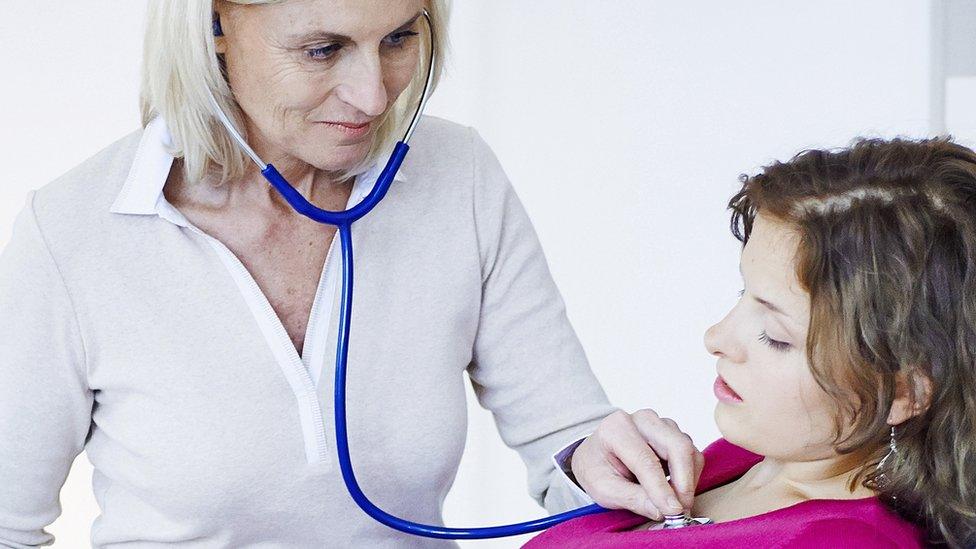A new boost for GPs – will it ease the pressure?
- Published

A warm welcome from two groups representing GPs suggests the new package of measures announced by NHS England may have struck some of the right notes.
The Royal College of GPs and the British Medical Association have been highly vocal in their warnings of the severe strain on primary care services in England and the sometimes intolerable workload.
Now they are talking of "a huge and important step in the right direction" and "a significant and comprehensive package of proposals". So what does it all add up to?
To an extent the positive reaction from the RCGP and the BMA reflects what they argue is the success of their lobbying campaign.
For some time they have highlighted and complained about the dwindling slice of the NHS cake awarded to general practice.
'Dig at government'
The new plan, set out by the head of NHS England, Simon Stevens, involves a reversal of that trend with the share of the NHS budget for general practice increasing from just over 8% this year to more than 10% by 2020.
Mr Stevens' comments alongside the launch of the plan are revealing. With what looks like a dig at successive governments he is saying very plainly that general practice has been underfunded for some time and that has contributed to the pressures on doctors and surgeries.
"If anyone 10 years ago had said: 'Here's what the NHS should now do - cut the share of funding for primary care and grow the number of hospital specialists three times faster than GPs', they'd have been laughed out of court. But looking back over a decade, that's exactly what's happened," Mr Stevens said.
The head of NHS England wants to let it be known that the pressures on GPs are being addressed and that action is now being taken.
The recruitment of 3,000 mental health therapists to work in practices alongside more clinical pharmacists, practice nurses, managers and receptionists is part of Mr Stevens' plan to ease the burden on GPs and allow them to focus more on those patients who most need care.
Boosting the GP workforce in England by 5,000 by 2020, in line with a government commitment, is at the heart of the new plan.
Waiting times
Mr Stevens and Dr Maureen Baker of the Royal College of GPs acknowledge this will not be straightforward but both seem confident it can be achieved.
They argue that the funding increase for general practice should make it easier to recruit. To reach that target, 500 extra doctors from outside the new UK will be required although reports that most will come from India have been denied.
So what about patients? The theory is that more money will facilitate extended surgery opening hours and the appointment of enough GPs to bring down waiting times for appointments.
Tailoring practice services to allow more online and Skype consultations for those who want them and "named doctor" relationships for older patients will be encouraged.
And yet doctors have been complaining that there is a real and immediate crisis for general practice with increasing numbers of unfilled vacancies and staff ground down by the workload leaving the profession.
The funding increases from NHS England will build up only gradually until 2020. One London GP said the announcement fell far short of what was needed to deal with a "state of emergency".
The challenge for Simon Stevens and GP leaders who support his plan is to show that doctors and patients are experiencing a tangible improvement.
A promise of more money is one thing - ensuring that it results in more resources and people across the grassroots of general practice is another.
- Published21 April 2016
